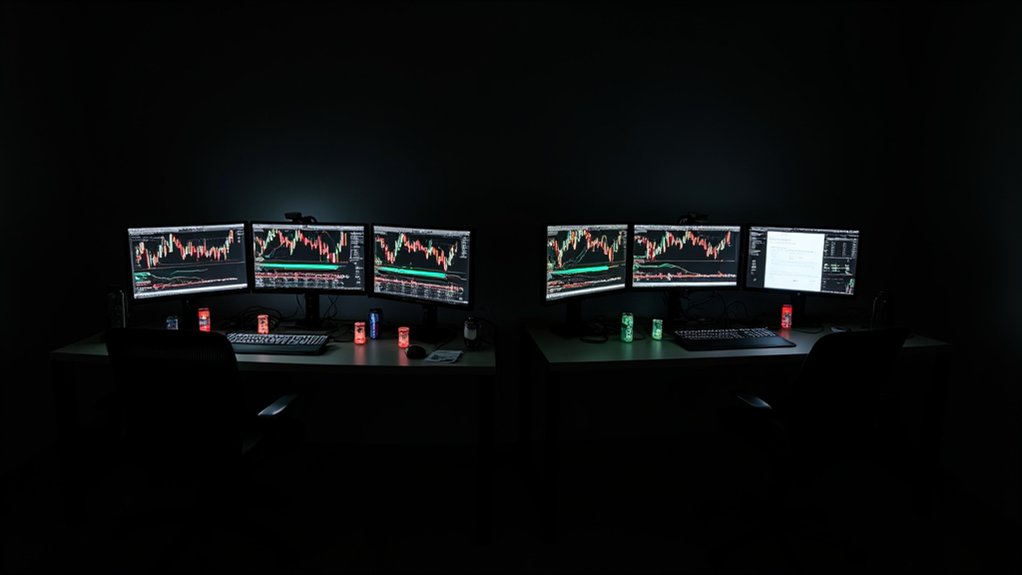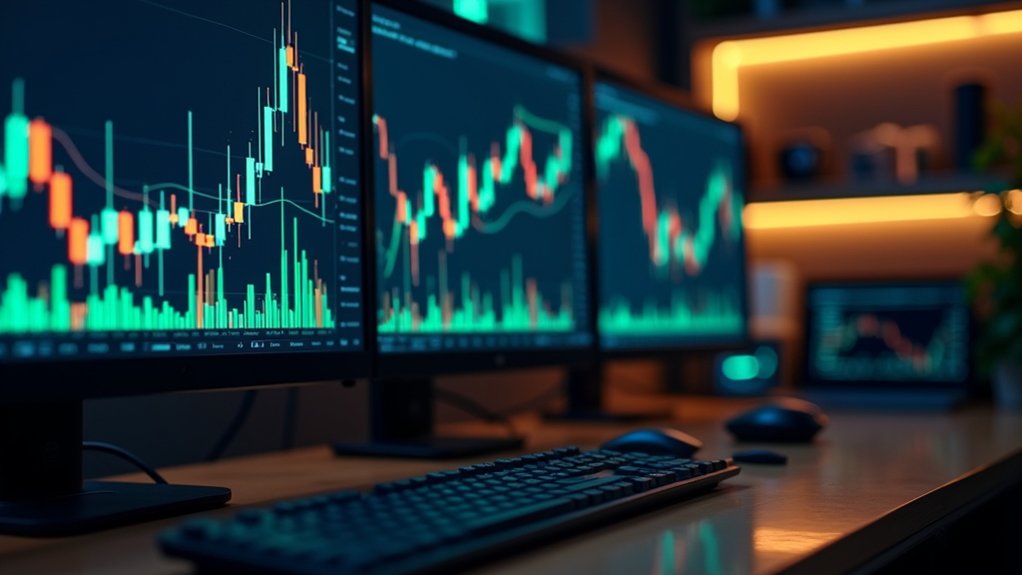When you receive a margin call, you must either deposit additional cash, add marginable securities, or close some positions to reduce your margin requirement.
Brokers usually provide limited time to respond—sometimes only hours—before automatically liquidating your positions to restore compliance.
Understanding how margin functions as collateral helps traders avoid margin calls by maintaining adequate account equity relative to their leveraged positions.
Implementing proper risk management strategies and appropriate position sizing can prevent your account from falling below minimum margin requirements in the first place.
In short: A broker's demand to restore your account equity when losses push your balance below minimum margin requirements.
Example in Action
A South African trader deposits $1,000 and uses 1:100 leverage to open a $100,000 position in USD/ZAR at 18.00. The broker requires 1% margin ($1,000) to hold the position and sets a 0.5% maintenance margin ($500).
If USD/ZAR drops to 17.91, the position loses $500, bringing the account equity down to $500, which equals the maintenance margin threshold. At this point, the broker issues a margin call requiring the trader to deposit additional funds or the position will be automatically closed to prevent the account from going negative. Understanding the bid and ask prices is crucial as the spread between them represents an additional cost that can impact how quickly a position moves into loss territory. If the trader fails to add funds and losses continue, the broker will reach the stop out level and forcibly close the position to protect both parties from further losses.
Why It Matters
Understanding margin calls isn't just academic exercise for African traders—it's survival knowledge in markets where volatility hits harder and safety nets barely exist.
When brokers liquidate positions because equity drops below maintenance requirements, entire accounts vanish.
No regulator's coming to save you.
Margin calls protect brokers from credit risk, force compliance with leverage limits, and prevent systemic collapse.
They also wipe out underprepared traders instantly.
Common Questions
Can African Brokers Issue Margin Calls Outside Business Hours or on Weekends?
Yes, African brokers can issue margin calls outside business hours and weekends through automated platform systems monitoring positions 24/7. Notifications arrive via email, SMS, or app alerts, though customer support and deposit processing remain limited to business hours.
What Happens if I Cannot Deposit Funds During a Margin Call?
The broker liquidates positions automatically to cover the shortfall, often at unfavorable prices. African traders face immediate forced sales of assets, potential account restrictions, and realized losses that may exceed initial deposits, particularly during volatile market conditions.
Do Margin Call Levels Differ Between Offshore and Locally Regulated African Brokers?
Yes, margin call levels differ markedly. Offshore brokers commonly set margin calls at 50% or lower with minimal protections, while locally regulated African brokers typically enforce higher levels—often 80%–100%—to enhance client safety and comply with stricter regional standards.
Can Unstable Internet in Africa Prevent Me From Responding to Margin Calls?
Yes. Africa's inconsistent connectivity—averaging 1.5GB monthly usage, frequent outages, and 39% penetration—can delay margin call responses. Nigerian, Kenyan, and Ghanaian traders often lose positions during network failures before executing protective actions like deposits or closures.
Are Margin Calls Affected by Sudden Currency Devaluations in African Economies?
Yes, sudden devaluations sharply erode local currency collateral value against foreign-denominated margin debts, frequently triggering margin calls across African markets like Nigeria, Ghana, and Zimbabwe, where brokers demand additional funds or liquidate positions to protect against rapid equity deterioration.
« Back to Glossary Index




